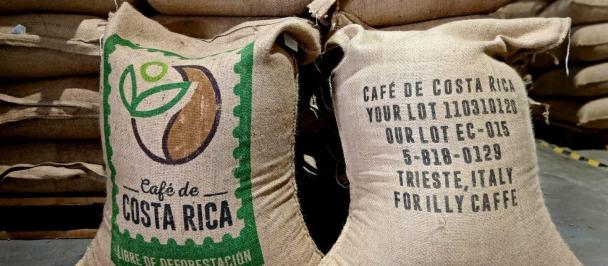Supporting Sector Transformation in Coffee Exporting Countries
May 26, 2022
UNDPs support to sustainable coffee production and trade goes back several decades, and includes early support to major certification organizations, coffee supply-chains, coffee farmers and sustainable productive landscapes. UNDP currently develops and implements a portfolio of projects that support sustainable, green and deforestation- free coffee. This commitment makes UNDP one of the major international development agencies which promote sustainable coffee production and consumption.
Working closely with partners, UNDP Green Commodities Programme is also now supporting the efforts of the International Coffee Organization’s Coffee Public Private Task Force (CPPTF).

© UNDP, Peru
Partnering with the Global Coffee Platform
UNDP Green Commodities Programme and the Global Coffee Platform have joined forces to support the efforts of the Coffee Public-Private Task Force and its ambitious Roadmap 2030 to transform the coffee sector.
Building on many years of work on sustainability in the coffee sector, the Coffee Public-Private Task Force was created in 2019 following a commitment from the International Coffee Council (ICC) and its secretariat, the International Coffee Organization (ICO) to increase public-private collaboration to achieve a prosperous, sustainable and inclusive coffee sector.
This Taskforce builds on both the ICO intergovernmental structure as well as the established networks of the World Coffee Producers Forum, Global Coffee Platform and the Sustainable Coffee Challenge. It is comprised of coffee producing and consuming countries, industry representatives, the Global Coffee Platform and the Sustainable Coffee Challenge, and observers.
To operationalize the shared vision, 5 Technical Workstreams were launched to create a Roadmap for 2030.
UNDP and the Global Coffee Platform are supporting efforts focussing on “Sector Transformation in Coffee Exporting Countries”
Building on their complementary strengths and in support of the shared vision, UNDP and the Global Coffee Platform have been co-facilitating the Technical Workstream Forum on “Sector Transformation in Coffee Exporting Countries” since mid-2021. This group is a dynamic mix of leaders from key coffee exporting and importing countries, private sector companies, development partners, expert NGOs and coffee associations.
During six interactive sessions so far, the members of the Technical Workstream “Exporting Countries” have shared key learnings, hard truths and best practices from within and beyond the coffee sector, as well as proposed targets for multistakeholder dialogue and collaborative action to be added to the Roadmap for 2030.
As next steps, UNDP and the Global Coffee Platform will be sharing an insights report summarizing the rich discussions so far, along with the recently approved targets on building or strengthening multistakeholder platforms in coffee exporting countries as part of the Roadmap. Importantly, follow-up with interested coffee exporting countries is underway, in close collaboration with the ICO Secretariat, other Technical Workstreams and potential partners.

©UNDP, Peru
Support with co-designing or strengthening Collaborative action structures
During 2022, UNDP and the Global Coffee Platform will deepen stakeholder engagement in select exporting countries and facilitate the co-design of new or strengthened existing collaborative action platforms or structures.
UNDP Senior Commodities Advisor Leif Pedersen said:
“The dialogue with national stakeholders and international partners should lead to a firm commitment to systemic change and willingness to take joint action, by forming coalitions between country representatives and the responsible public institutions in producer countries, global coffee companies, civil society organizations, donor agencies, financing institutions and other key stakeholders interested in improving the livelihood of millions of farmer families while conserving the fragile ecosystems in coffee production landscapes.”
If you are interested to learn more about this work, please contact Leif Pedersen at leif.pedersen@undp.org

 Locations
Locations












